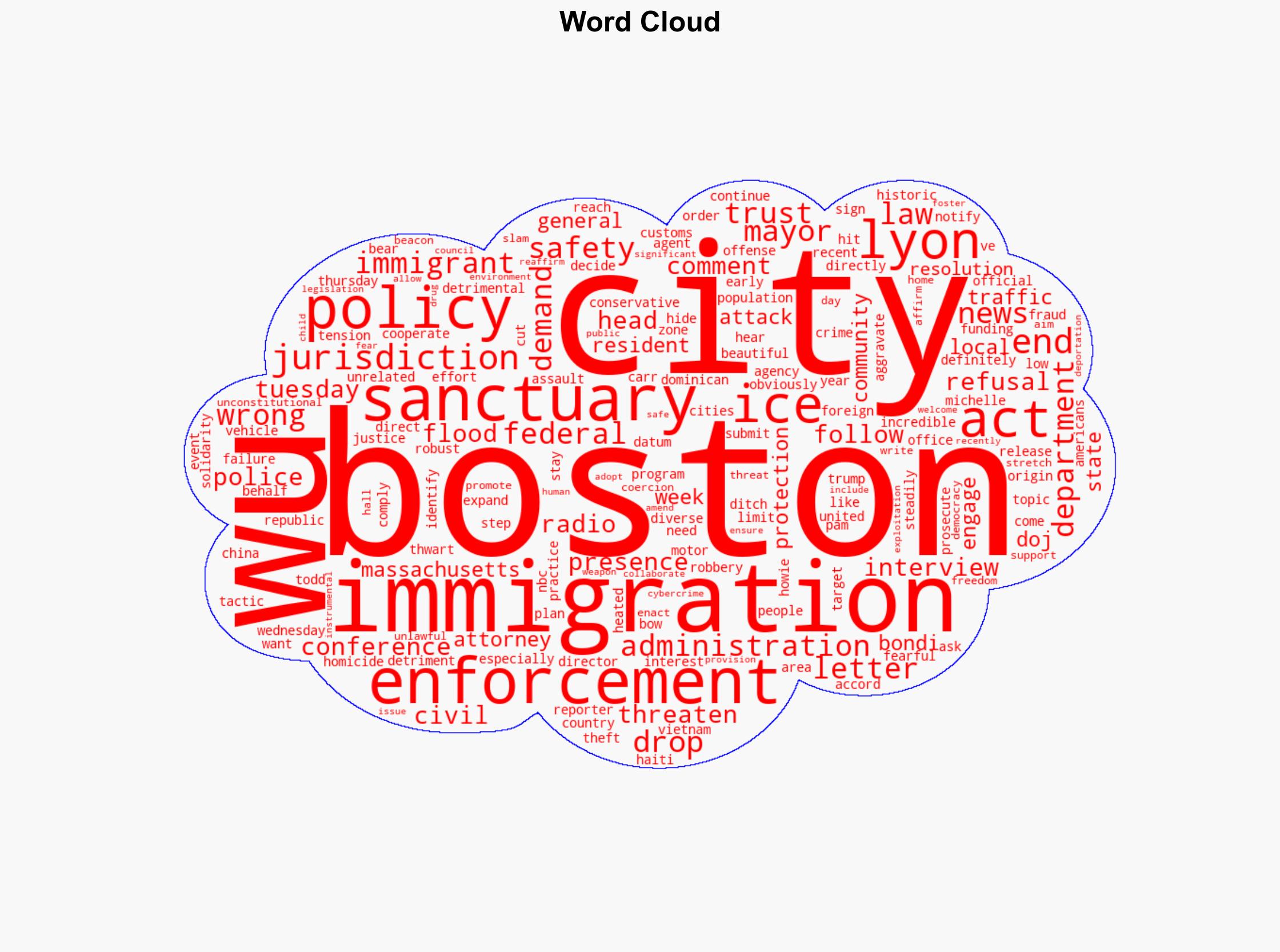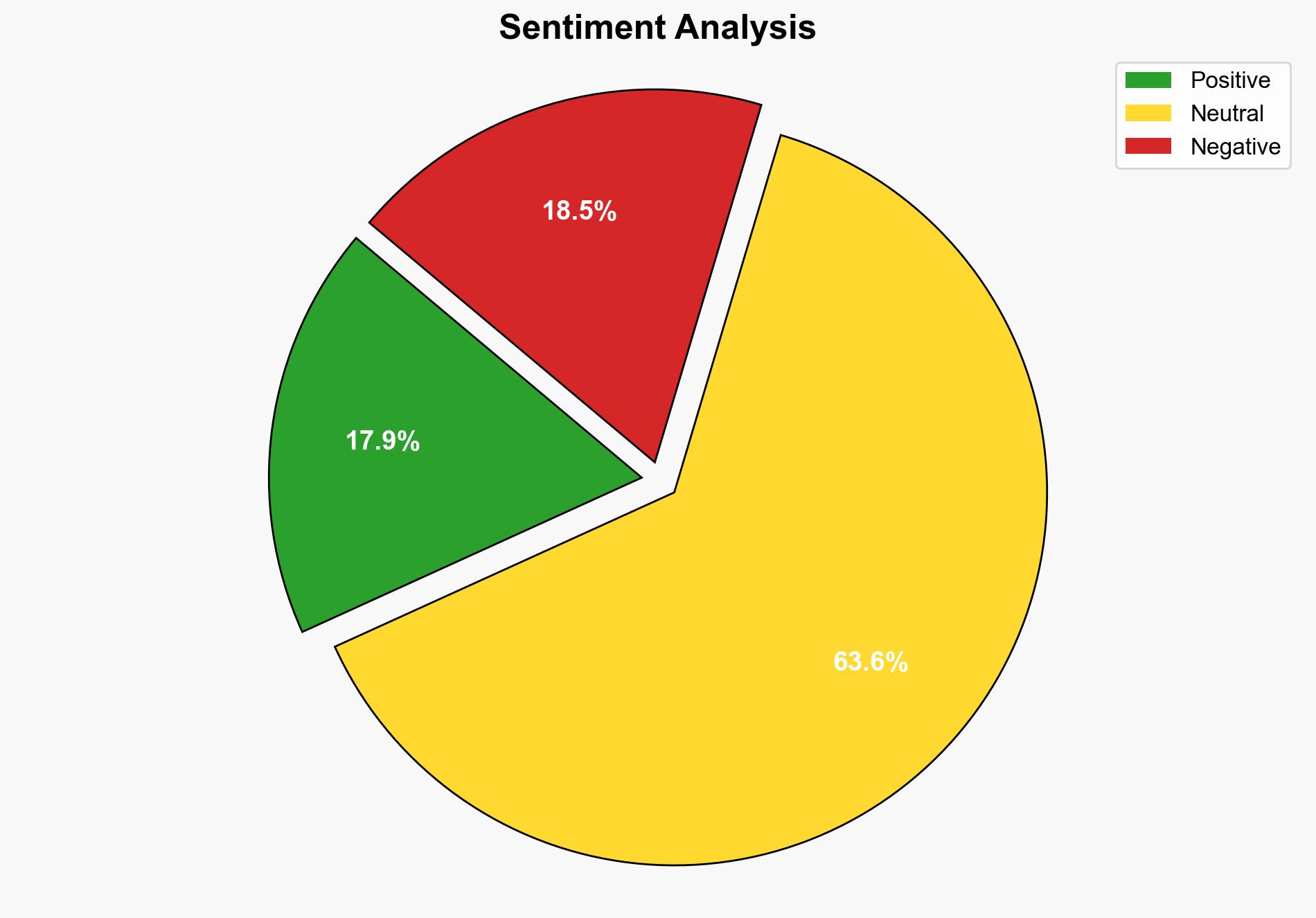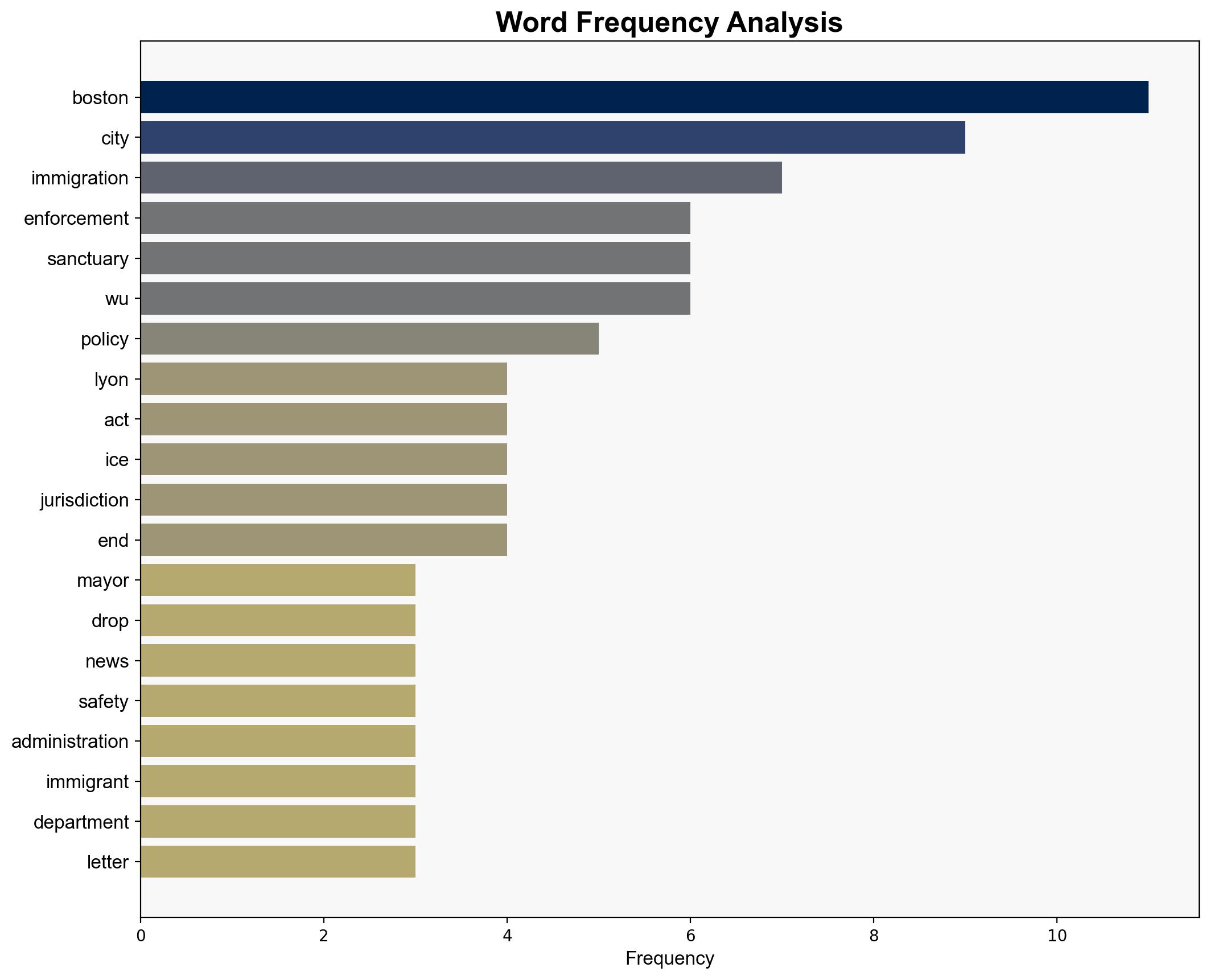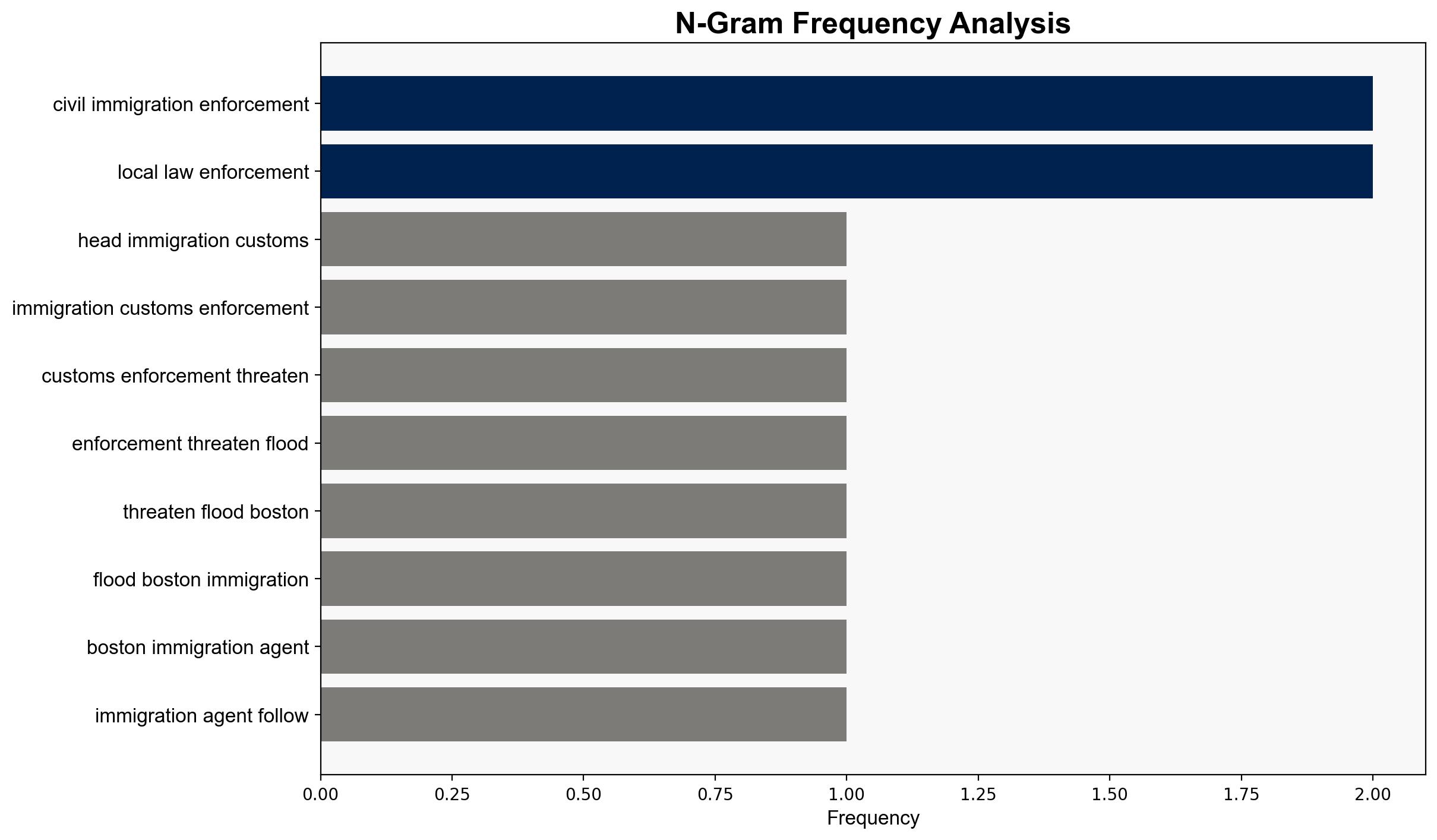ICE chief threatens to ‘flood’ Boston with agents after mayor won’t abandon sanctuary policy – NBC News
Published on: 2025-08-21
Intelligence Report: ICE chief threatens to ‘flood’ Boston with agents after mayor won’t abandon sanctuary policy – NBC News
1. BLUF (Bottom Line Up Front)
The strategic judgment suggests that the ICE’s threat to increase its presence in Boston is primarily a pressure tactic to coerce the city into abandoning its sanctuary policy. This hypothesis is supported by the pattern of federal pressure on sanctuary cities. The confidence level in this assessment is moderate due to the potential for both political posturing and genuine enforcement intentions. Recommended action includes diplomatic engagement to de-escalate tensions and explore legal avenues to address federal-local policy conflicts.
2. Competing Hypotheses
1. **Hypothesis A**: The ICE’s threat to “flood” Boston with agents is a strategic move to pressure the city into compliance with federal immigration enforcement policies. This aligns with previous federal actions against sanctuary cities and is likely a continuation of broader policy enforcement efforts.
2. **Hypothesis B**: The threat is primarily rhetorical, aimed at appeasing a political base and demonstrating a tough stance on immigration without actual intent to significantly increase ICE presence in Boston. This could be a tactic to maintain political support without committing substantial resources.
3. Key Assumptions and Red Flags
– **Assumptions**: Hypothesis A assumes that ICE has the resources and political backing to significantly increase its presence in Boston. Hypothesis B assumes that the threat is not backed by a concrete operational plan.
– **Red Flags**: The lack of specific details on the operational plan from ICE and the absence of similar actions in other sanctuary cities could indicate a bluff. Additionally, the political context and timing of the statement suggest potential posturing.
4. Implications and Strategic Risks
– **Economic**: Increased ICE activity could disrupt local economies, particularly in sectors reliant on immigrant labor.
– **Geopolitical**: Tensions between federal and local governments may escalate, affecting broader state-federal relations.
– **Psychological**: Heightened fear among immigrant communities could lead to decreased cooperation with local law enforcement, undermining public safety.
– **Cascading Threats**: Potential for protests and civil unrest if ICE actions are perceived as aggressive or unjust.
5. Recommendations and Outlook
- Engage in dialogue with federal authorities to clarify intentions and seek a cooperative approach to immigration enforcement.
- Prepare legal defenses to protect sanctuary policies and explore avenues for judicial intervention if necessary.
- Scenario Projections:
- **Best Case**: Federal and local authorities reach a compromise, reducing tensions and maintaining public safety.
- **Worst Case**: Escalation leads to significant ICE operations in Boston, resulting in public unrest and economic disruption.
- **Most Likely**: Continued rhetorical exchanges without significant operational changes, maintaining the status quo.
6. Key Individuals and Entities
– Michelle Wu
– Todd Lyon
– Pam Bondi
7. Thematic Tags
national security threats, federal-local relations, immigration policy, sanctuary cities




